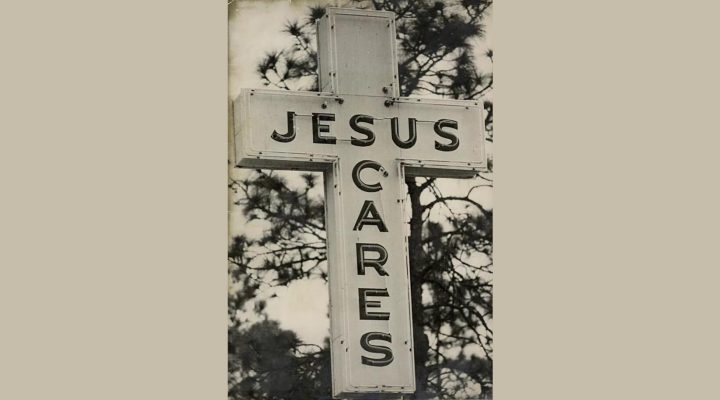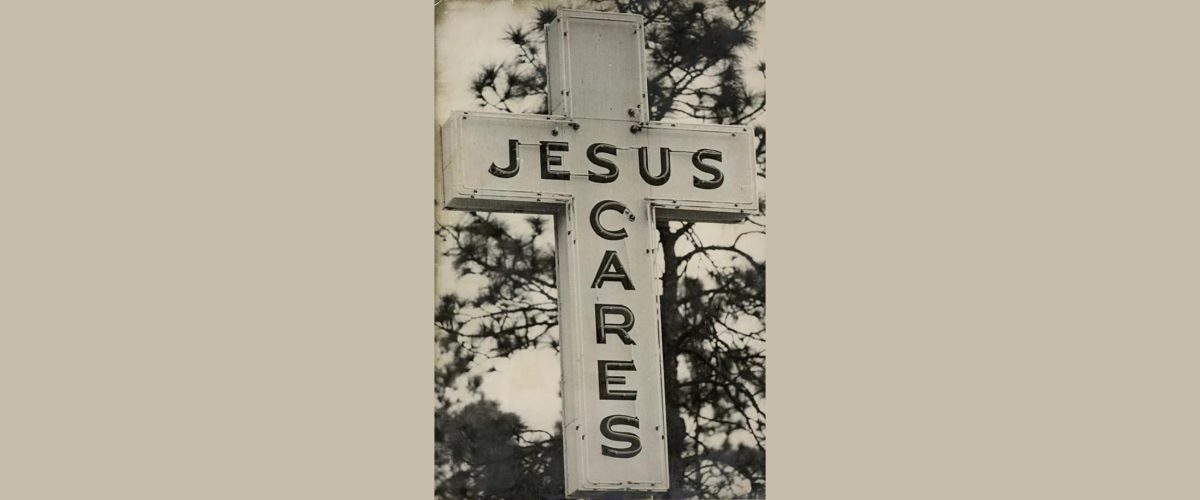After the violent attack on her husband Paul, Nancy Pelosi released a statement saying she and her family are heartbroken and traumatized but are grateful for the prayers and warm wishes they have received. Her husband is improving. Then she quoted the following verses from Isaiah: “Do not fear, for I am with you. Do not be dismayed, for I am your God. I will strengthen you and help you. I will uphold you with my righteous right hand.”
Repeatedly in the Bible we hear “fear not” or “do not be afraid.”

Julia Goldie Day
We were created with a capacity for fear. Fear has its purposes. It creates caution so we don’t put our hand in the fire and get burned. Fear does that. Fear says to our brains, “Wait!” and we react to keep our physical bodies or our minds safe from harm. It keeps us from walking into oncoming traffic or from standing on the top rung of a ladder that has a clear warning to prevent us from standing there.
Fear can keep us safe, and fear also can keep us from taking risks. We can be too afraid to try something new or to walk up to a stranger and introduce ourselves. We all have made tangible decisions — to act or to not act — out of fear that we sometimes regret.
Sometimes we are forced to take risks. We get backed into a corner and it becomes harder to get free. We then have no choice but to face our fear and choose: fight or flight or succumb to harm. Paul Pelosi seems to have been in that very difficult and scary situation. It’s not hard to imagine the attacker wanted to make him afraid. Wanted to make Speaker Pelosi afraid. Wanted to make us afraid.
Fear can be weaponized against us. Fear of hell. Fear of punishment. Fear of harm. Fear of shame. Fear of being unliked. Politicians often play to our fears. Someone will replace us. A particular group will get something they don’t deserve or take our jobs. People unlike us shouldn’t be allowed past our borders. Your religious rights will be taken if others’ religious rights also are honored. Books in the library and the reality of history will traumatize children in public schools. They want to mutilate children with gender affirming care. Sound familiar? That’s fear and its powerful.
“We must be diligent in recognizing when fear is used by others to hurt or silence another.”
Sadly, it seems as Paul Pelosi’s attacker was enticed by these fearful messages that led him to choose violence. As Christians, we must be diligent in recognizing when fear is used by others to hurt or silence another. Even the church can be guilty of using fear to motivate in ways that harm and confuse.
At a church I served, I brought my youth group to another church to participate in some service activities. We participated in the activities and then sat down to eat together. Before I could say anything, an adult came over and asked each teenager this question, “If you die tonight are you certain that you are saved, and you will go to heaven?” Kids were looking at me with wide eyes like, “Oh my gosh, what do I say?” I told them to tell her “yes” in hopes that would satisfy her and she would leave them alone. I would talk to them afterward about what had happened. But the adult was not deterred. She got to me and asked me the same question. Suppressing my annoyance, I also simply answered “yes” without reminding her she knew that I was a minister.
This would not be the first or last time I talked with confused teenagers or children, and even adults, after they had experienced an overly pushy invitation with “every eye closed and every head bowed.”
I find this type of invitation or questioning unproductive because most people will just tell you what you want to hear or respond by doing what you want them to do — like we did that day.
Of course we don’t want to go to hell when we die! As young people, especially, learn more about what it means to become a Christian, they don’t need to be threatened into a making a decision that may not be about following Jesus but saving themselves from hellfire and damnation. A reaction out of fear isn’t an intrinsic decision to follow Jesus our whole lives long. That’s why some Baptist churches rebaptize and rebaptize and no one is clear what to do with their new life other than to restart it again when feeling guilty about something.
“Fearmongering has caused a great deal of harm in our churches.”
This fearmongering has caused a great deal of harm in our churches. We are reacting poorly as Christians by allowing politicians to bait us. Allowing harmful rhetoric to seep into our places of worship. I can’t blame it completely on the white male pastors in skinny jeans compelling folks to get saved or else, because fear has marbled Christian history. From the so-called Holy Wars to folks who didn’t hold correct beliefs burning at the stake to Jonathan Edwards’ famous sermon “Sinners in the Hands of An Angry God,” we have sinned much in the name of fear. We lose sight of our command to love when fear overwhelms. For there is no room in love for fear.
1 John 4:8 says, “There is no fear in love, but perfect love casts out fear; for fear has to do with punishment, and whoever fears has not reached perfection in love.”
It is human nature to fear. We always will struggle to find healthy ways to deal with our fear so that we can boldly follow Jesus. What we must learn is not to confuse Jesus with fear, for when we do we corrupt the good news of the gospel.
When Jesus is used to cause fear, that’s not gospel.
When Jesus is used to punish, that’s not gospel.
When Jesus is used to control, that’s not gospel.
When Jesus is used to manipulate, that’s not gospel.
When Jesus is used to make anyone (yes, anyone) powerful, that’s not gospel.
When Jesus is used to establish one person or group over another, that’s not gospel.
Don’t be afraid of losing power or influence, give it up freely for love. And don’t be afraid of losing God’s love; that’s not possible. Jesus came not to scare us but to care for us so that we might live in freedom and love. That we might live life abundantly. No matter what we think in fearful times, we already are saved. Already redeemed and deeply loved.
Step out of the boat, start to sink, and then rise with your hand in the hand of Jesus, unafraid.
Julia Goldie Day is ordained through the Cooperative Baptist Fellowship and lives in Memphis, Tenn. She is a painter and proud mother to Jasper, Barak and Jillian. Learn more at her website.
Related articles:
Halloween reminds me of that time I was called upon to lead a ‘cleansing’ at a family’s home | Opinion by Justin Cox
This is Halloween: Seven ways to do something good this Halloween | Opinion by Patrick Wilson
What is Halloween, anyway? | Analysis by Mallory Challis
The Kentucky youth group brainsaw massacre — a ghost story for All Hallows Eve and Reformation | Opinion by Brad Bull


